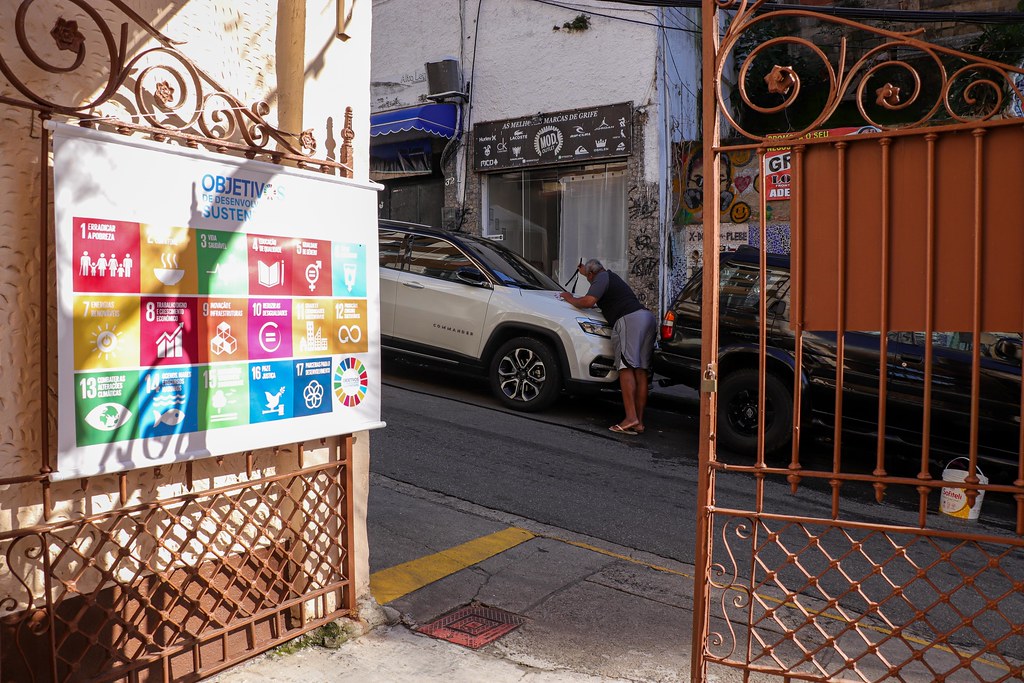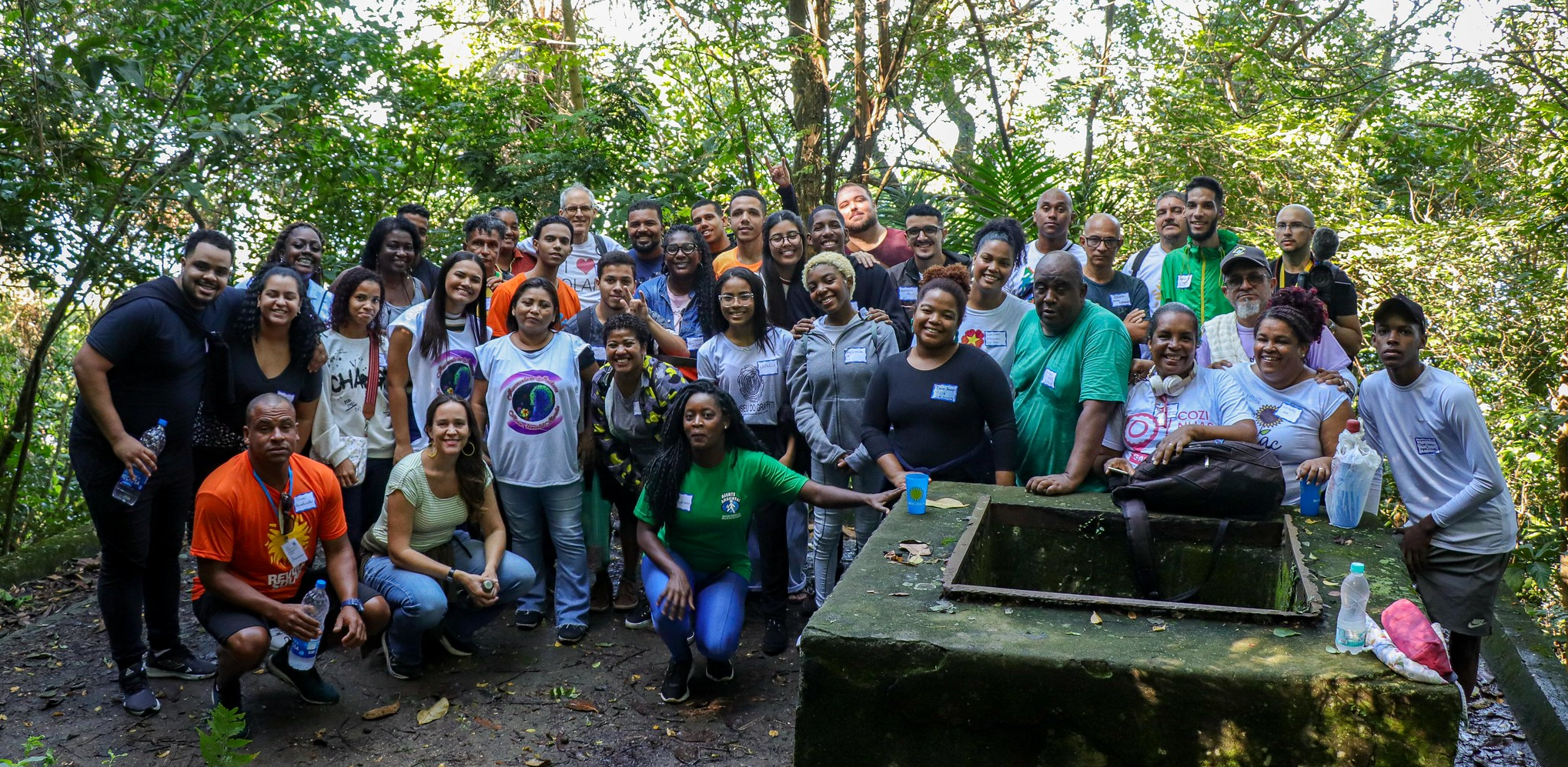
On June 3, Rio de Janeiro’s Sustainable Favela Network (SFN) launched a Mini-Course for Favela Solar Energy Ambassadors in the Babilônia favela, in the city’s South Zone. The gathering brought together community organizers from the network to discuss and introduce the course’s theme: “the role of solar energy in realizing energy and climate justice,” under the leadership of Revolusolar, a member of the SFN active in the field for eight years. Over subsequent weeks, the course united grassroots leaders from diverse communities online on Wednesdays, concluding with a final meeting on August 12 at the headquarters of the Association of Women with Attitude and Social Commitment (AMAC) in the Dique da Vila Alzira favela, in the neighboring municipality of Duque de Caxias, in Greater Rio’s Baixada Fluminense. On this day, the AMAC had its own photovoltaic system installed.
The online course consisted of ten lessons led by Revolusolar, that began its work in the Babilônia favela in 2015. In the first in-person class, participants took an educational tour of Babilônia’s “Solar Corridor,” guided by Dinei Medina. Afterwards, they explored the trail of the Paisagem Carioca Natural Municipal Park, where they discussed the importance of solar energy for favelas, as well as its connection to sustainability in a broader context.
Watch the video of Medina’s tour through Babilônia’s Solar Corridor and the Paisagem Carioca Natural Municipal Park:
After lunch, hosted by local partner Leme Baptist Church, course priorities were discussed during an active exchange among participants, all organizers from other favelas.
“The idea is for the classes to be conversational. During the afternoon session of the opening class, we played more of a listening role, the leaders of each community bringing up the top priority issues and doubts about solar energy.” — Eduardo Avila, Executive Director of Revolusolar
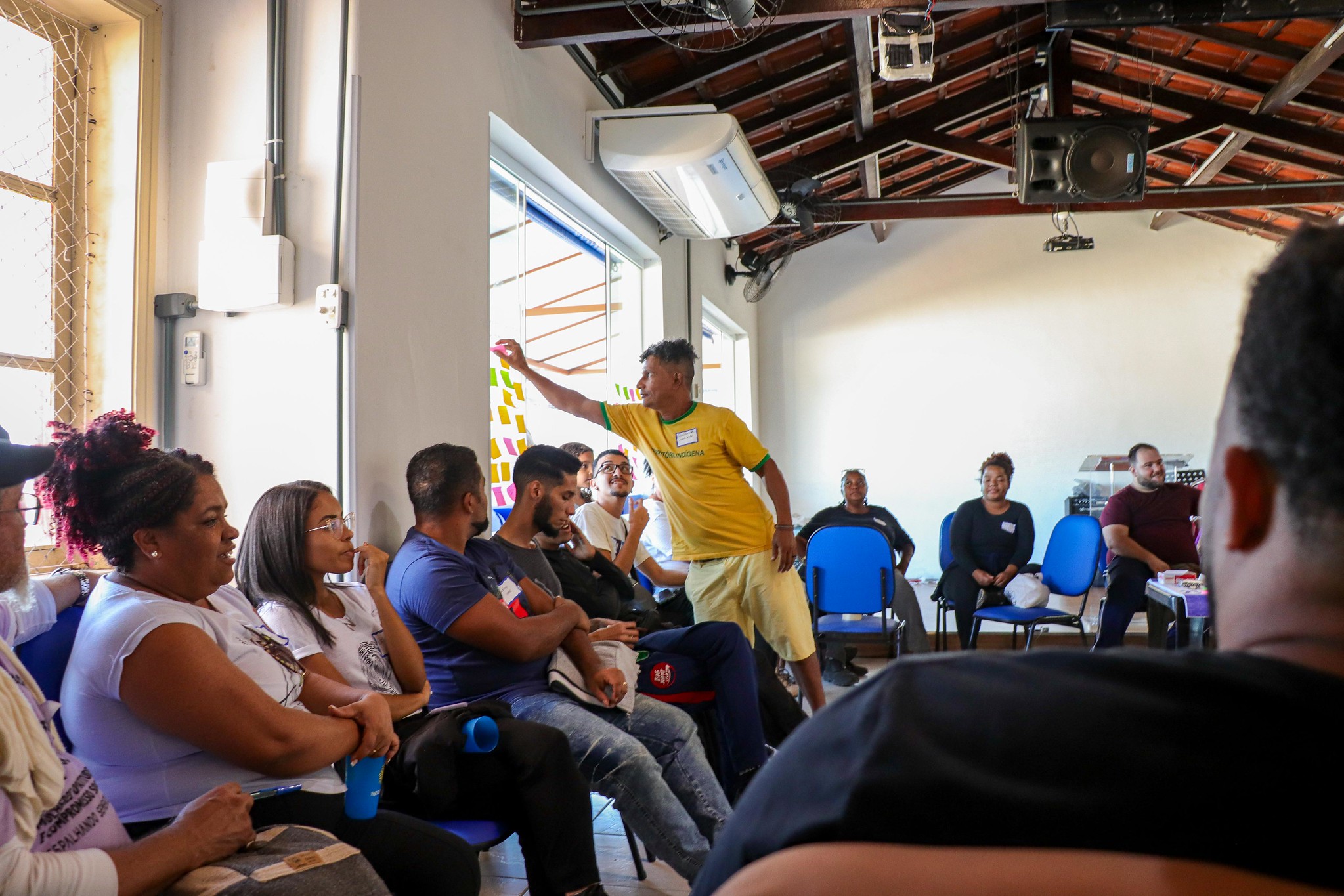
Starting the following week, the remote lessons covered eight themes, engaging over 120 people, primarily community organizers from Rio, but also allies and leaders from other communities, including from different regions of the country. This allowed for a national perspective on community projects involving solar energy, with exchanges across various Brazilian regions that informed students so as to create their own solar proposals to be shared in the final class.
“Solar energy has all the potential to succeed in our country. It depends on the good will of both government and utilities, because it’s not in their interest for the people to become energy independent. Let’s hope everything works out, so we can have solar energy in our communities, in the favelas, and in the Amazon.” — Edize Maria Santos, Association of Women with Attitude and Social Commitment (AMAC)
The introductory topics were covered (what is energy, its sources, and segments of the electricity sector), followed by a focus on the energy transition and the presentation of community organizers who are references in solar energy, both within the Sustainable Favela Network (Rio de Janeiro state and also from MAB (Minas Gerais state) the Good Living Cooperative (Paraíba state), Conjunto Paulo Freire (São Paulo), and Favela da Paz Institute (São Paulo). Finally, the theme of how to develop a solar energy project by favela community-based organizations was centered, with guidance on how participants can write their own solar energy proposal and seek sponsorship.
“I’ve had the opportunity to visit some places abroad. That’s when I really started thinking about these technologies, and my question was always: how come they have this cutting-edge technology there, but there’s no solar energy or biodigestion in the low-income areas of São Paulo?” — Fábio Miranda, Favela da Paz Institute, South Zone of São Paulo
Miranda suggested that everyone can study technologies around them and talked about his experience with the first distributed energy project within the state of São Paulo, in his community of Favela da Paz.
The course included people of different age groups, which provided an intergenerational discussion on energy inefficiency in vulnerable territories. Youth from the 2022 SFN course “Monitoring Water and Energy Justice in the Favelas” participated, as well as veteran leaders from the four corners of the city.
Among the course’s rich discussions were those exchanged by the students themselves. One fact reported by a local leader who was present in the virtual class is that approximately one million people in the Amazon are without electricity.
“They install these hydroelectric plants in our city, in our communities, they destroy the rivers, they destroy the cultures, and they take away our sustainability, and even the people who are affected don’t have the right to electricity. Here in our city, our riverside families don’t have electricity.” — Maria Francineide, Xingu Women’s Collective (Altamira, Pará)
The tenth and final class was once again held in person, this time at the headquarters of AMAC, a community organization in Dique de Vila Alzira in Duque de Caxias, which works to support women victims of violence and families in the region. There, students presented their proposals for solar energy projects at the headquarters of their community-based organizations. They were also able to observe the solar installation live, on AMAC’s roof, throughout the day.
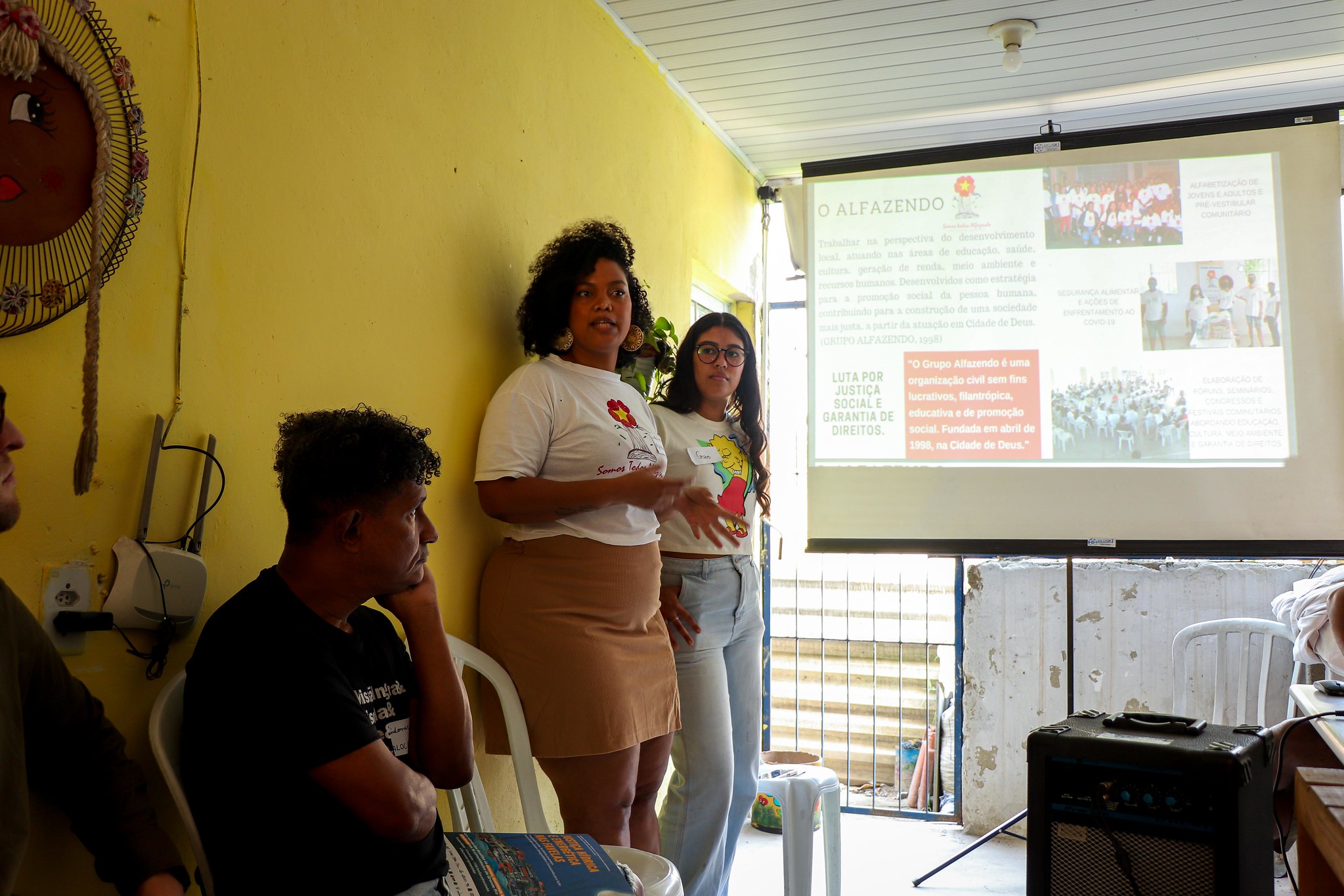
During the presentation of the projects in the final class, Lidiane Santos and Gabrielle Silva from favela NGO Alfazendo, a reference in socio-environmental education in City of God, described the importance of having solar energy on the premises of the actions they do in a local public school, naming the initiative “Eco Brilharte.”
“We thought of Eco Brilharte as a possibility… of implementing solar energy…” — Gabrielle Silva
Both pointed to the different initiatives of Alfazendo, and thus, the importance of solar energy for actions in City of God.
“Sustainable development is a reality in favelas—despite all the mechanisms employed by environmental racism to cause deaths, illnesses and subhuman living conditions—because community-based institutions weave networks to overcome these challenges. To shed light on this vision, implementing solar energy in the model house we are setting up at the Verde Que Te Quero Ver School enhances local socio-environmental development efforts.” — Lidiane Santos
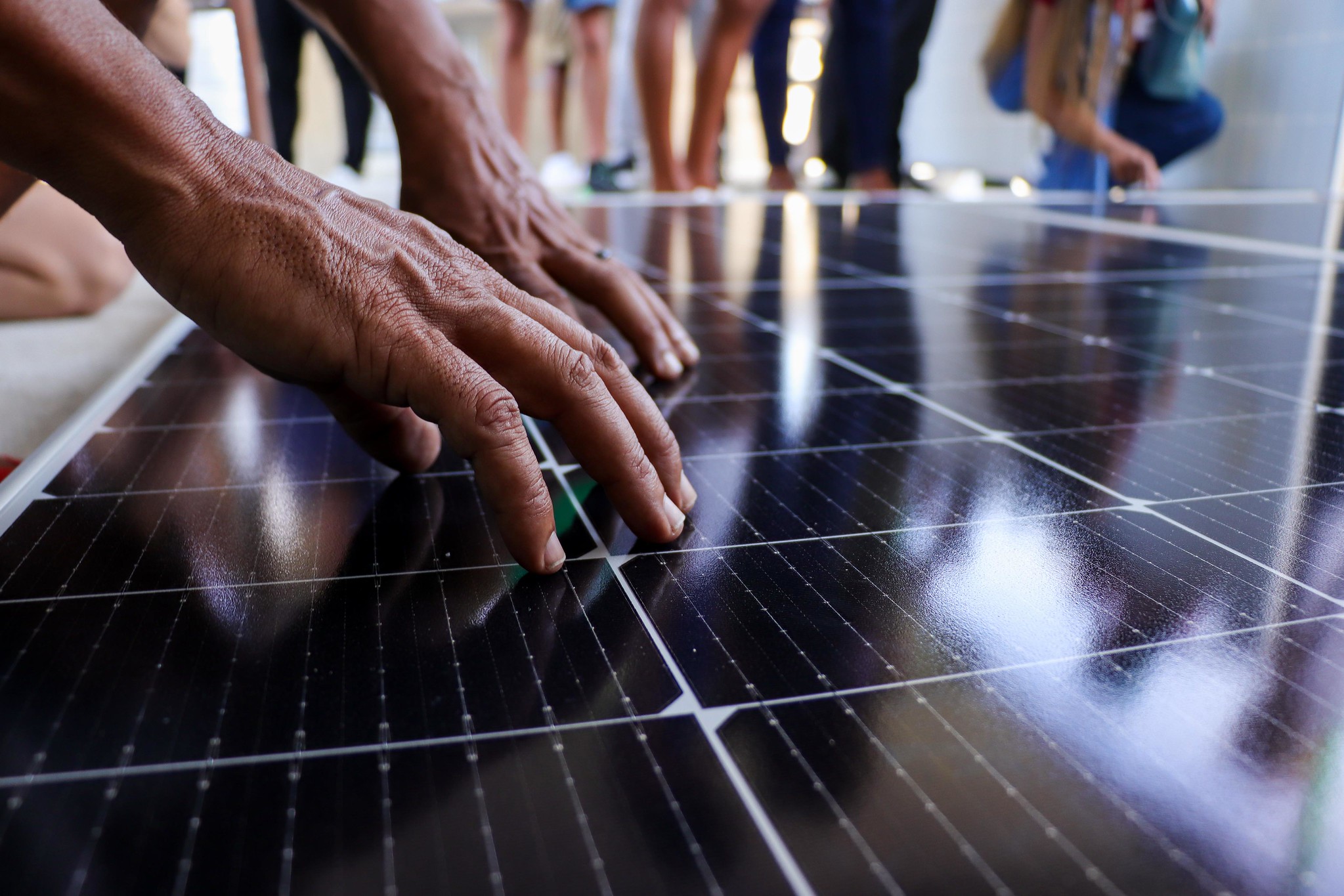
As such, the leader-students were able to interact with the solar panels, and discuss their importance to favelas, from the vantage point of the municipality of Duque de Caxias. Carlos Gabriel Santos, from AMAC, emphasized that it is necessary “to show that this is not the future. This is reality! And just as we’ve done it, [others] can also… contribute to a better future.”

